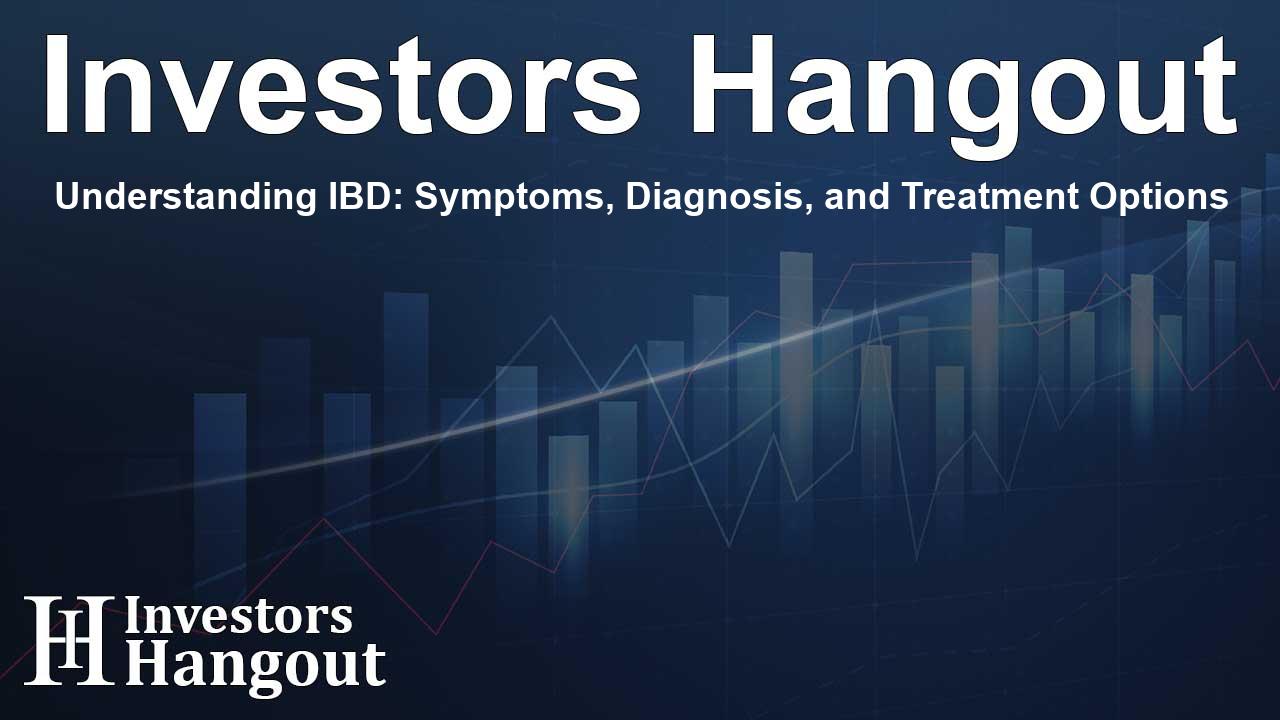Understanding IBD: Symptoms, Diagnosis, and Treatment Options

Understanding Inflammatory Bowel Disease (IBD)
Many people may hesitate to discuss gastrointestinal (GI) problems, but it’s essential to understand that GI issues affect millions. Research indicates that a vast number of individuals, approximately 60-70 million, have concerns related to gut health.
Among the various GI conditions, irritable bowel syndrome (IBS) and inflammatory bowel disease (IBD) are frequently mentioned. Although they may appear similar, they are distinct disorders with different implications and health risks.
What is Inflammatory Bowel Disease?
IBD is a term that encompasses diseases causing chronic inflammation in the GI tract. Unlike IBS, which is characterized by a collection of symptoms and does not generally involve inflammation or require surgical intervention, IBD presents significant health challenges. A study highlights that around 1 in 100 individuals in the U.S. suffer from IBD, primarily in the form of Crohn's disease or ulcerative colitis.
Recognizing Symptoms of IBD
Comprehending the signs of IBD is crucial since it can lead to severe health complications and lasting damage to the intestines. If you have any of the following symptoms, it's advisable to consult with your healthcare provider:
- Constant, severe abdominal pain lasting several days or resurfacing over weeks.
- Marked changes in bowel movements, whether increased or decreased frequency.
- Persistent diarrhea for several weeks or frequent loose stools throughout the day.
- Intermittent constipation or alternating between constipation and diarrhea.
- Recurring urgency or an inability to control bowel movements.
- Presence of blood in stool.
- Regular occurrence of mucus in stool, especially accompanied by other symptoms.
- A feeling of incomplete bowel evacuation after a movement.
Moreover, it's essential to monitor additional symptoms like fatigue, unexplained weight loss, and changes in appetite, as these can also indicate a serious underlying issue, especially when they appear alongside gastrointestinal symptoms.
How is IBD Diagnosed?
Diagnosing IBD can be complex since no single test definitively confirms conditions like Crohn's or ulcerative colitis. Your healthcare provider will analyze your medical history and recommend a series of tests to eliminate other possible causes of your symptoms, which are often shared among various gastrointestinal disorders. Standard diagnostic procedures may include blood tests, stool analysis, imaging of the GI tract, or endoscopy for direct examination.
Exploring Treatment Options for IBD
Following a confirmed diagnosis of IBD, collaborating with your healthcare provider to tailor a treatment plan specific to your needs is vital. The management strategies often vary between individuals, as what benefits one person may not work for another. Common approaches involve medication combined with dietary and nutritional management.
In more severe cases, surgery might be necessary to enhance quality of life for those battling IBD. Another avenue worth considering is participation in clinical trials. Engaging in clinical trials is crucial as it allows the development of innovative treatments that enhance patients' quality of life. Clinical trials focus on advancing research to provide new options for IBD patients.
Moreover, diverse participation in these trials is essential to ensure that treatments are effective across different populations, considering factors such as age and ethnicity. If you’re considering being part of a clinical trial, consult with your doctor who can assist in identifying suitable studies, as patient participation plays a pivotal role in this progressive research.
Conclusion
Understanding the nuances of IBD, from identifying symptoms to exploring treatment options, is an empowering approach for anyone affected by GI disorders. Knowledge is power, and with the right information, individuals can work closely with healthcare professionals to craft a management strategy that enhances their wellbeing.
Frequently Asked Questions
What are the main differences between IBS and IBD?
IBS is a syndrome characterized by symptoms without causing inflammation, while IBD is an inflammatory condition affecting the GI tract.
What are the common symptoms of IBD?
Symptoms of IBD include severe abdominal pain, changes in bowel habits, blood in stool, and fatigue, among others.
How is IBD diagnosed?
Diagnosis typically involves medical history, laboratory tests, imaging studies, and possibly endoscopic examinations.
What treatment options are available for IBD?
Treatment can include medication, dietary management, surgery, and participation in clinical trials for new therapies.
How important is patient participation in clinical trials?
Patient participation is crucial for advancing treatment options and ensuring diverse representation in research for better outcomes.
About Investors Hangout
Investors Hangout is a leading online stock forum for financial discussion and learning, offering a wide range of free tools and resources. It draws in traders of all levels, who exchange market knowledge, investigate trading tactics, and keep an eye on industry developments in real time. Featuring financial articles, stock message boards, quotes, charts, company profiles, and live news updates. Through cooperative learning and a wealth of informational resources, it helps users from novices creating their first portfolios to experts honing their techniques. Join Investors Hangout today: https://investorshangout.com/
Disclaimer: The content of this article is solely for general informational purposes only; it does not represent legal, financial, or investment advice. Investors Hangout does not offer financial advice; the author is not a licensed financial advisor. Consult a qualified advisor before making any financial or investment decisions based on this article. The author's interpretation of publicly available data shapes the opinions presented here; as a result, they should not be taken as advice to purchase, sell, or hold any securities mentioned or any other investments. The author does not guarantee the accuracy, completeness, or timeliness of any material, providing it "as is." Information and market conditions may change; past performance is not indicative of future outcomes. If any of the material offered here is inaccurate, please contact us for corrections.